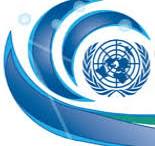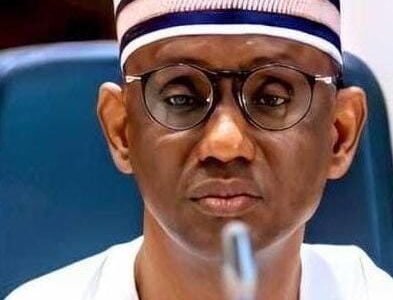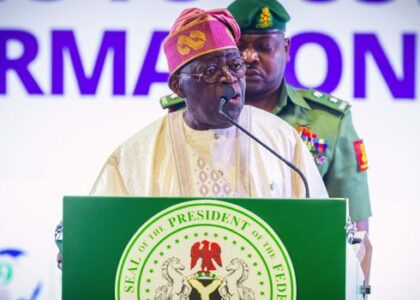Amos O Enabulele
The Goal
The news that Nigeria’s application for an extended Continental Shelf (CS) has been granted to the breadth of 20 Nautical Miles (nm) by the Commission on the Limit of the Continental Shelf (CLCS), was bound to provoke the excitement it has provoked amongst experts on the law of the sea. Beyond the excitement, the real question now should be what Nigeria stands to benefit from the additional 20nm. This requires some thoughts on the preparedness of Nigeria to benefit from its overall maritime entitlements.
The Zones
Under the United Nations Convention on the Law of the Sea (UNCLOS), being a coastal State, Nigeria is entitled to exercise its national jurisdiction (article 1(1) of the UNCLOS) over four zones: the Territorial Sea, the Contiguous Zone, the CS and the Exclusive Economic Zone (EEZ). By the clear provision of the UNCLOS, reflecting customary international law (CIL), Nigeria is entitled to exercise sovereignty over the seabed, subsoil, the superjacent waters and the air column over 12 nautical miles from the relevant baseline along its coast – the Territorial Sea (articles 2 and 3 of the UNCLOS). This is the only zone that appertains to Nigeria by reason of her territorial sovereignty. The other three zones are derived from the rights accorded coastal States by the law of the sea for the specific purposes for which the zones were created and granted (article 77(3)).
Categories of Rights
Accordingly, while Nigeria can exercise its absolute rights within its territorial sea, subject to the right of innocent passage (article 17 of the UNCLOS), it can only exercise the limited sovereign rights allowed it by the law of the sea in the other zones. The contiguous zone (article 33 of the UNCLOS), which is 24nm from the same relevant baseline is for prevention and punishment of infringement of customs, fiscal, immigration or sanitary laws and regulations within Nigeria’s territory or territorial sea. Nigeria is entitled to exercises its sovereign right over the EEZ, covering 200 nm of the superjacent waters from the same relevant baseline (articles 55-57). It is also entitled to exercise sovereign right over the CS (article 76), generally covering 200 nm of the seabed and subsoil from the same relevant baseline. Both the EEZ and CS are mainly economic in nature and Nigeria is only permitted to exercise exclusive rights over the resources of the zones with due regards to the protection of the marine environment from pollution and to the rights of all other States to use the zones for other purposes. This invariably means that Nigeria can exercise enforcement powers, but only those that are required to enjoy its rights and fulfil its duties in the zone.
As the focus of this piece is on the Nigeria CS, we shall now tailor the discussion along that line.
The Continental Shelf
The term “continental shelf” bears different definitions depending on whether it is being defined by a geologist or a lawyer. To the geologists, “the continental shelf” is that part of the continental margin which is between the shoreline and the shelf break or, where there is no noticeable slope, between the shoreline and the point where the depth of the superjacent water is approximately between 100 and 200 metres. To a lawyer, it is as defined in article 76 of the UNCLOS, that:
the continental shelf of a coastal State comprises the submerged prolongation of the land territory of the coastal State – the seabed and subsoil of the submarine areas that extend beyond its territorial sea to the outer edge of the continental margin, or to a distance of 200 nautical miles where the outer edge of the continental margin does not extend up to that distance….
There is what I would call, the default CS (200nm from the relevant baseline) which every coastal state is entitled to, as distinct from the extended CS, which some coastal States are entitled to by reason of the geographical configuration of the coastal platforms. By reason of paragraphs 4 to 9 of article 76, coastal States with naturally prolonged continental margin could establish an extended CS up to 350nm. However, unlike the delimitation of other maritime boundaries, the extended CS is not a unilateral act of State sovereignty – Fisheries case, (United Kingdom v. Norway), ICJ Rep 1951, 116, 132 – in that a State whose natural prolongation qualifies it for the extension, can do so only on the approval; of the CLSC (article 76(8)).
This explains why Nigeria and all other States that have extended CS had to apply to the CLCS for verification and approval of their entitlement. Whatever additional limits the CLSC determines a State is due is then added to the default 200 nm entitlement of each coastal State. This is capped at an additional 150nm for extended CS, for an overall 350nm of a combination of the default and the extended. By reason of the additional 20nm, therefore, Nigeria now has an overall CS 220nm in that area of the Western part of the Gulf of Guinea.
The Commission on the Limit of the Continental Shelf
Detailed provisions on the CLCS are contained in Annex II to the UNCLOS. Article 3 of the Annex stipulates the functions of the Commission to be:
(a) to consider the data and other material submitted by coastal States concerning the outer limits of the continental shelf in areas where those limits extend beyond 200 nautical miles, and to make recommendations in accordance with article 76 and the Statement of Understanding adopted on 29 August 1980 by the Third United Nations Conference on the Law of the Sea; and
(b) to provide scientific and technical advice, if requested by the coastal State concerned during the preparation of the data referred to in subparagraph (a).
The CLCS is the vehicle which implements the UNCLOS regime on the establishment of the outer limits of the CS beyond 200 nautical miles from the relevant baselines of a deserving coastal State.
The Long Road to Nigeria’s Extended Continental Shelf
In accordance with article 76, paragraph 8, of the UNCLOS, Nigeria submitted its application for an extended CS to the CLCS on 7 May 2009. It was first presented to the twenty-fourth session of the Commission on 28 August, 2009, by a delegation led by the then Attorney General of the Federation and Minister of Justice, Michael Aondoakaa. Other members of this historic delegation were Aliyu Omar, Director, National Boundary Commission, U. Joy Ogwu, Permanent Representative of Nigeria to the United Nations, and a number of scientific, legal and technical advisers.
One remarkable point made by Mr. Aondoakaa at the point of presentation was that the submission was made without prejudice to maritime boundary delimitation with neighbouring States with opposite or adjacent coasts. This was a clear indication that the Governments of neighbouring States will not pose any obstacles to the implementation of article 76 on the part of Nigeria. He hinged this assurance on a meeting held under the auspices of the Economic Community of West African States (ECOWAS) in Accra, Ghana, from 24 to 26 February 2009. That meeting had been attended by representatives from Benin, Côte d’Ivoire, Ghana, Nigeria and Togo, who reached the common understanding that “[i]ssues of the limit of adjacent/opposite boundaries shall continue to be discussed in a spirit of cooperation to arrive at a definite delimitation even after the presentation of the preliminary information/submission. Member States would, therefore, write ‘no objection’ note to the submission of their neighbours”.
The CLCS established a subcommittee to look into the application at its 39th session in 2015, which considered the submission in its 39th and 40th sessions and raised some questions which led Nigeria to conduct a new geophysical survey in the Gulf of Guinea. On 18 September, 2016, Nigeria submitted an amendment to its earlier submission.
The approval of extended continental shelf entitlement for Nigeria followed the consideration of the recommendations of the Commission on the application of Nigeria on 11 August, 2023, sequel to the presentation of the of 8 August, 2023, by the Permanent Representative of Nigeria to the United Nations and head of delegation, Tijjani Muhammad Bande. He was assisted by a technical adviser and member of the High-Powered Presidential Committee on the Continental Shelf, Lawrence Awosika; and a technical consultant with the Australian National Centre for Ocean Resources and Security at the University of Wollongong, Philip Symonds. The Commission deliberated on the recommendations and approved it with amendments on 11 August 2023.
ECOWAS Community’s Share of Extended CS
Nigeria is not the only ECOWAS State that has claimed an extended CS. Ghana submitted an application on 8 April, 2009; Côte d’Ivoire submitted its application on May 8, 2009; the Republic of Cabo Verde, the Republic of The Gambia, the Republic of Guinea, the Republic of Guinea-Bissau, the Islamic Republic of Mauritania, the Republic of Senegal and the Republic of Sierra Leone, submitted a joint application on 25 September 2014; the Republic of Liberia submitted an application on 23 October 2018; the Republic of Benin and the Togolese Republic also submitted a joint application on 21 September 2018.
Interestingly, that of Ghana was approved as far back as 2014, and that of Côte d’Ivoire was approved on 2020. Earlier in the year, being concerned over the delay of the Nigerian application, the Centre for Community and Oceanic Law contacted the Secretariat of CLCS on 31 May, 2023, to ascertain the state of Nigeria’s application. This enquiry was responded to by the CLSC’s Principal Legal Officer, who provided the Centre some helpful guidance on the matter on 14 June, 2023.
What is in it for Nigeria
The CS is a warehouse of resources, including huge oil and gas deposit. By article 77 of UNCLOS, Nigeria exercises over the continental shelf, sovereign rights for the purpose of exploring it and exploiting its natural resources. These consist of the mineral and other non-living resources of the seabed and subsoil together with living organisms belonging to sedentary species, that is to say, organisms which, at the harvestable stage, either are immobile on or under the seabed or are unable to move except in constant physical contact with the seabed or the subsoil. By article 81, Nigeria has the exclusive right to authorize and regulate drilling on its CS as well as to install artificial islands and engage in other economic activities (article 80, read together with article 60)
As Nigeria has now acquired sovereign rights over an additional 20nm of CS, the CS area over which it can now perform or authorise these activities has been extended, from 200nm to 220 nm, as a result. The exclusivity of the rights is further emphasised by article 77(4), which makes the sovereign rights to explore and exploit exclusive to Nigeria in the sense that if Nigeria does not explore Nigeria’s CS or exploit its natural resources, no other State may undertake these activities without the express consent of Nigeria.
It is however, not all about rights, there are also obligations which Nigeria must be minded to fulfil, not least of which is the overarching duty to protect the marine environment. Nigeria is also under obligation to make annual payments and contributions with respect to the exploitation of the CS beyond its original 200 nautical miles, except if it is shown that Nigeria is a net importer of a mineral resource produced from its CS in which case it will be exempt from making such payments or contributions in respect of that mineral resource.
Minimising the impact of extended CS on the Area
It is essential to remark that the ocean floor assumes differing nomenclatures and bestows different category of rights as it proceeds seawards. What is referred to as the seabed and subsoil of the territorial sea over which a coastal State has sovereignty is what progresses into the CS over which a coastal State exercises only limited rights described as sovereign rights; and it is the same that progresses into the deep ocean floor of abysmal region known as the Area. The area is reserved for all mankind as the common heritage of mankind (Articles 136 and 140 of the UNCLOS). It is defined in article 1 as “the seabed and ocean floor and subsoil thereof, beyond the limits of national jurisdiction” because it is not subject to the sovereignty or the control of any State (article 137 of the UNCLOS). Its resources belong to all mankind and to be shared to all States – coastal or landlocked.
There is a clear relationship between the extended CS and the Area in the sense that were the institution of extended CS not created, all the ocean floor beyond 200nm would naturally fall within the Area. It appears that it is in recognition of the fact that extended CS removes from the Area that coastal States with extended CS are obligated to make the contributions mentioned previously. This is more so as the contributions are required to be made through the Authority to distribute to State Parties to the UNCLOS on the basis of equitable sharing criteria, taking into account the interests and needs of developing States, particularly the least developed and the land-locked among them. The Authority is the body saddled with the responsibility to govern the Area and its resources.
The End
In the final analysis, it is difficult to be very optimistic that Nigeria would take full advantage of the extended continental shelf as quickly as it should. This is because the manner Nigeria has so far managed its oil and gas resources hardly inspire any confidence. It is however possible to be hopeful that the creation of the Federal Ministry of Marine and Blue Economy would not just be only in words but also in action to be seen in measurable achievements. It is expected that would urgently complete the process and commence licencing and exploration activities in the zone. I cannot omit to stress the benefit of cooperation and collaboration between opposite and adjacent States in this regard. The ECOWAS platform is a ready platform to be used to galvanise efforts towards a better utilization of the blue resources of the region. It is yet to be seen how ECOWAS has taken advantage of the fact that twelve – Benin, Cabo Verde, Côte d’Ivoire, The Gambia, Ghana, Guinea-Bissau, Guinea-Conakry, Liberia, Nigeria, Sierra Leone, Senegal and Togo – out of its 15 member States are coastal States and all twelve coastal States have submitted applications to the CLCS for a share of an extended CS. The ECOWAS Accra, Ghana meeting of 24 to 26 February, 2009, that paved the way for a no-objection extended continental shelf application by ECOWAS States has shown that such cooperation is needed and possible. These States should pull resources together to develop a strong blue economy and safe ocean for the community.
Amos O Enabulele is a Professor of Public International Law and DG, Centre for Community & Oceanic Law







